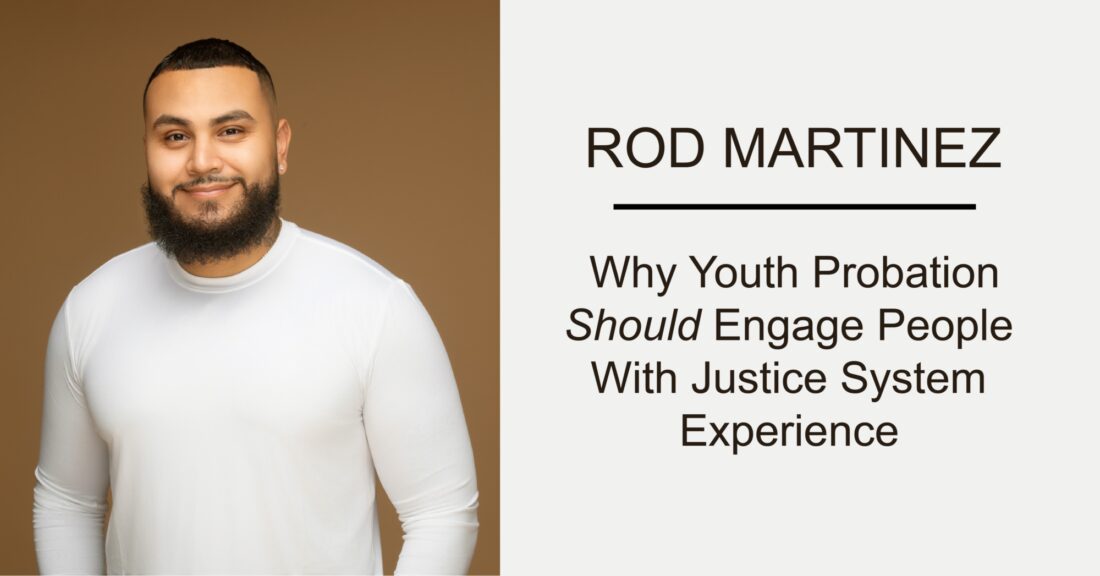Why Youth Probation Should Engage People With Justice System Experience
A Conversation With Rod Martinez

High rates of recidivism and involvement with the legal system have prompted justice agencies nationwide to pursue strategies to improve the trajectories of people with system involvement. One approach gaining traction is engaging individuals with justice system experience — known as those with “lived experience” — to serve as credible messengers, navigators and mentors to young people on probation. A new report, Incorporating Those with Lived Experience to Improve Community Supervision Outcomes, highlights the opportunities and challenges of adopting this approach.
Rod Martinez, a senior research associate at the Annie E. Casey Foundation, contributed to the report. He participated in an expert workshop with leaders across the country representing systems, research and community-based organizations and advocacy groups to determine how to promote broader adoption of lived experience initiatives. [At the workshop, participants used “lived experience” to mean having any direct, firsthand experience with the justice system, from being arrested or convicted of a crime to serving a period of incarceration, probation or parole.] The University of Denver and RAND — the report publisher — convened the group on behalf of the National Institute of Justice.
In this Q&A, Martinez discusses takeaways from the workshop and report. He also draws on his experiences as a researcher who has dedicated his career to bringing people with direct experience in the legal system and other marginalized groups into the research process.
Why does it matter if youth probation agencies use credible messengers?
Martinez: First, several evidence-based models, such as the work in New York City-based agencies, have demonstrated success. To me, it’s always been about equity. A lot of people who have served time in correctional facilities or been in the legal system at all have been historically excluded from many sectors and kinds of work or, oftentimes, predatorily included. In research, for example, people with direct experience have been research subjects where we extract information from them when we should be partnering with them, recruiting, hiring and training them as part of the research process. The other important reason why it matters is if you include people who have direct experience in the system, it enhances the validity of your data and the effectiveness of your programs, practices and policies.
Are credible messengers getting enough attention in youth justice?
Martinez: There is greater attention, but many issues and questions still need to be addressed. One of those issues concerns the capacity-building needs of the anti-violence workforce and how to sustain this line of work fairly and equitably. As the report raises, we also need more best practices on what it looks like to create and implement any credible messenger initiative. Lastly, we need more research and evaluation on what works, how it works and why these programs work for young people in various places and contexts across the country.
What will readers get out of the report?
Martinez: The report offers broad lessons and reflections from varied perspectives on how to meaningfully incorporate people with firsthand justice system experience. The contributors were from different parts of the country and different contexts, and the report is a window into some of the issues this very diverse group talked about. There’s something useful to almost anyone’s work. There are sections on research, policies, practice and more, and a reader could take a small piece and begin to explore it.
Read more on the importance of firsthand experience in youth probation






